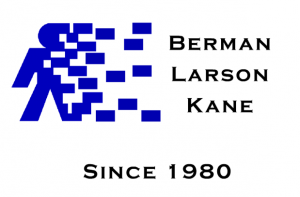Career Report

August, 2006 — Issue 78
Easing Back to Work After a Vacation
With summer vacation season in full swing, millions of American workers are taking a break — seeking replenishment from the daily office grind. But while numerous studies show that taking time off can do everything from boosting productivity to reducing heart-attack risks, vacations very often can have side effects that turn workers into inefficient space cadets upon their arrival back to the office.
In fact, according to surveys by a staffing company that does workplace research, it takes the average employee a day and half to resume productivity at work after a break, a Career Journal.com article pointed out. So with e-mails piled up and co-workers anxious to catch up on conversation, how can workers hit the ground running and avoid common blunders that can sabotage their first days back?
One strategy that some people employ, according to the article, is to tell colleagues a return date later than it really is, and getting home a few days early from vacation. Randy Pausch, a professor at Carnegie Mellon University who teaches time-management workshops, builds in a one-day cushion by setting the return date in his e-mail “out-of-office” replay message a day ahead of his actual return, and telling people he’s coming back later than he actually does. “You want time to process things before the live fire comes through the door,” he said.
Another good idea is not to fritter away your first day regaling co-workers with vacation tales, said Allison Hemming of the free-lance talent agency The Hired Guns. When in her early 20s, Hemming recalled, she was a vacation gabber. “I could go on for days about how blue the water was.” Her first boss offered a quick hint: “Take one really great story about your break, and stick to it.” Now, she offers a quick highlight – like catamaraning through caves in Nepal – then gets back to work.
But pick one story that telegraphs a message, the article pointed out. “If you’re in the 40-plus age group, communicate that you’re an active person. It wouldn’t hurt to say you had a good time going skiing, or mountain-climbing, or snow-shoeing,” said Don Sutaria of CareerQuest, a New Jeresy-based employment coaching firm.
One successful tactic used to avoid wasting time is to start treating yourself like an important colleague. “You schedule business meetings with everyone else – why not schedule time with yourself to work on specific projects?” said Jeffrey Mayer of SucceedingInBusiness.com. “Keep the appointment, turn off the phone, don’t check the e-mail every 45-seconds.” If you work better at certain times of day, schedule the most demanding tasks for those periods.
As you plow through your e-mail, keep an arsenal of sticky notes close by, the article noted. When you open something up that requires follow-up, “slap a Post-it on it saying what’s the next thing that needs to be done with the paper and how long it will take,” said Julie Morgenstern, an author of time-management books. Example: “Fill out form and return to HR.” Then keep a stack of these notes in your inbox, so the next time you’re stuck on hold on the phone you can deal with one or two instead of staring into space.
And don’t just skim your e-mail. You should try not to touch e-mail more than once. Morgenstern’s rule is if a response takes less than two minutes, do it immediately. If it takes longer, add a new item to your “to do” list.
After your initial e-mail sweep, don’t let your in-box run your day. “Your in-box is not your to-do list,” said Pausch. You’re better off setting aside a block of time per hour for e-mail – then give yourself long uninterrupted stretches to get regular work done.
If your boss starts dumping work on you, make it clear you’re busy. “Say, I’ve got these four other things to do, can you help me prioritize?” suggested Sean Covey of Franklin Covey, a productivity consulting firm in Salt Lake City, Utah.
Of course, the best strategy for a smooth re-entry is good planning before you take off, according to the CareerJournal.com article. In the weeks before you leave, train someone exactly how to do your job. “People think that if they hoard information, then they’ll have power,” said William Hubbart of Hubbart & Associates in St. Charles, Ill. That’s a mistake. If you don’t teach someone how to do your job, a lot less gets done while you’re away.
In addition, good back-ups make it less likely you’ll be contacted on your vacation. Pausch, the Carnegie Mellon professor, has another strategy for avoiding calls on vacation: He gives students and colleagues his wife’s cell phone number, instead of his own. “You have to create social barriers,” he said. “It’s a very strong reminder that they’re interrupting social time.”
News from BLK
Bob Larson, President of BLK and Chairman of the Board of NAPS (National Association of Personnel Services) will represent NAPS at the annual conventions of both the Ohio and the Illinois Associations of Personnel Services, being held in September. He has also been chosen to address the annual convention of the Garden State chapter of SHRM (Society of Human Resource Management) in November.
In order to continue to provide the best staffing options to our candidates and clients, we now offer retained search for those clients who feel this would best suit their hiring needs. For details on this and our other staffing products, please contact Michele Meussner at michelem@jobsbl.com, or 201-556-2884.

